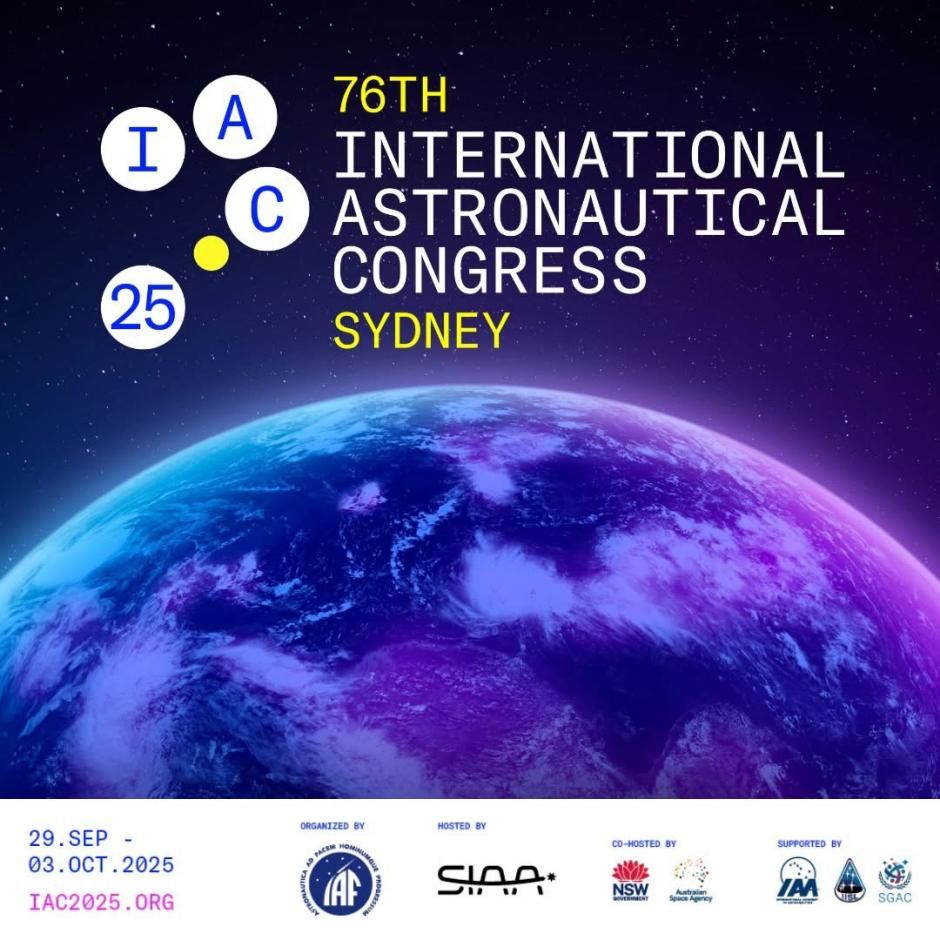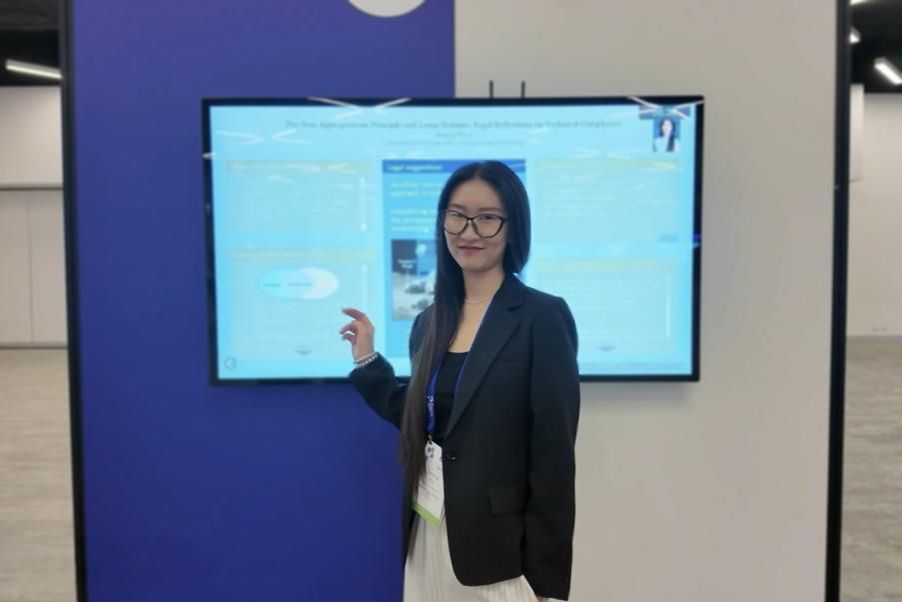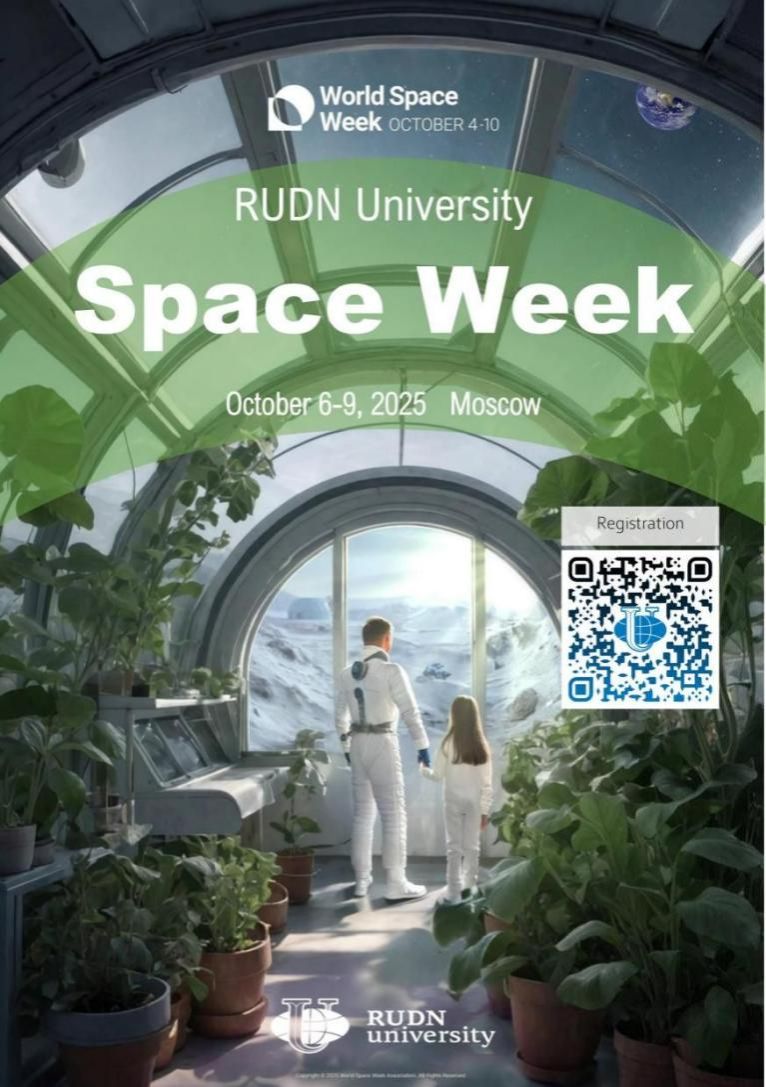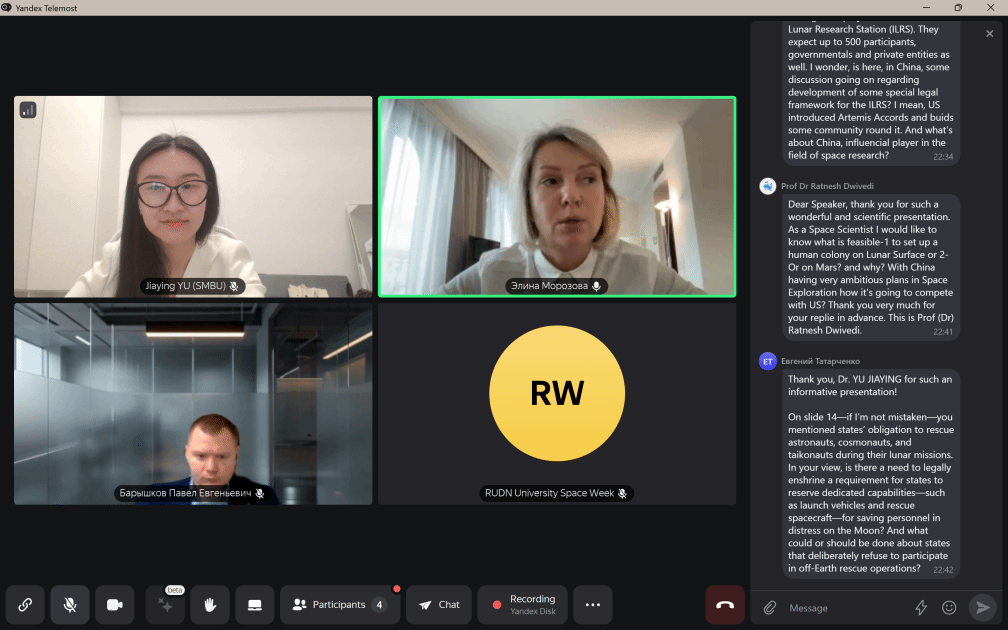Recently, Dr. Yu Jiaying, faculty member of the Center for Sino-Russian Comparative Law at Shenzhen MSU-BIT University, was invited to attend the International Astronautical Congress and the “Space Week” Conference at Peoples’ Friendship University of Russia (RUDN University) during the 2025 “World Space Week”. Dr. Yu delivered academic presentations at both events. “World Space Week”, established under the auspices of the United Nations, is a global celebration of space science and technology held annually in over 90 countries in early October. It is recognized as one of the most influential international events in the field of space exploration. The 2025 edition of “World Space Week”, themed “Living in Space,” focused on human survival and development beyond Earth. Through forums and exhibitions, the event brought together experts from various sectors to foster global cooperation in space.
From September 29 to October 3, the 76th International Astronautical Congress was successfully held in Sydney, Australia. The congress was organized by the International Astronautical Federation (IAF), hosted by the Space Industry Association of Australia (SIAA), and co-organized by the Australian Space Agency and the Government of New South Wales. Under the theme “Sustainable Space: Resilient Earth,” the 2025 IAC convened representatives from governments, industry, and academia to discuss key topics including space applications, sustainable development, and human survival beyond Earth. Dr. Yu Jiaying made an interactive presentation titled “Principles of Space Law and Lunar Stations: A Legal Inquiry from a Technological Compliance Perspective” in the “Lunar Exploration” session.

Her presentation analyzed how the core principles of existing international space law treaties apply to lunar base construction, combining legal interpretation with the technical characteristics of lunar installations. She emphasized that, given the urgent need to improve the legal framework for lunar activities, Articles I and II of the Outer Space Treaty form the core normative basis for lunar base construction. Dr. Yu further proposed legal approaches for ensuring treaty compliance in the technical practice of lunar station development.

The IAC gathered participants from a wide range of disciplines. Scholars of space law, aerospace engineers, policymakers, and industry experts attended from leading institutions including national space agencies, the United Nations Office for Outer Space Affairs (UNOOSA), the International Academy of Astronautics (IAA), the International Institute of Space Law (IISL), and numerous universities and research centers worldwide. In the field of law, discussions covered topics such as the use of force in outer space, space sustainability and space law, public and private law issues related to small satellites, intellectual property protection in scientific research, lunar activity and orbital management, and the intersection of climate change and space law.
From October 6 to 9, the 5th “Space Week” Conference of RUDN University was successfully held online. Organized by the Department of International Law at RUDN University as part of “World Space Week”, the conference centered on the global theme “Living in Space,” bringing together experts and scholars from around the world in the fields of space technology, space law, and space policy. Dr. Yu was invited to deliver a keynote speech in the session “Living on Celestial Bodies,” titled “What Does It Mean to ‘Live’ on the Moon? Legal Reflections on Human Activities on Celestial Bodies.” The session was moderated by Dr. Elena Morozova, Executive Director of the International Organization for Cosmic Communications and Lecturer in International and Space Law at Saint Petersburg State University.

In her presentation, Dr. Yu explored two central aspects—“Living” and “the Moon.” The concept of “living” extends human activities to extraterrestrial bodies, raising questions of jurisdiction and legal protection of human life and health in international lunar station operations. “The Moon,” on the other hand, refers to potential resource utilization on celestial surfaces, highlighting the role of the principle of “freedom of scientific investigation” in shaping international regulatory frameworks for lunar resource management. During the Q&A session, the moderator and participating scholars raised in-depth questions related to the presentation and engaged in a lively academic exchange with the speaker.

Participants of the conference included distinguished representatives from leading institutions such as Roscosmos, Rosatom, Peoples’ Friendship University of Russia, the Space Research Institute of the Russian Academy of Sciences, Moscow State Institute of International Relations, Saint Petersburg State University, the Moon Village Association, and its Global Expert Group on Sustainable Lunar Activities. Among the attendees were cosmonauts from Roscosmos, the former Chair of the Working Group on the Long-Term Sustainability of Outer Space Activities under the UN Committee on the Peaceful Uses of Outer Space, representatives of the UNCOPUOS Working Group on Legal Aspects of Space Resource Activities and the Lunar Activities Coordination Mechanism, as well as members of the International Institute of Space Law and other professionals in the field. The conference featured multiple forums and public lectures on topics such as living in space stations, peaceful uses of nuclear power in outer space, space sustainability, and human habitation on celestial bodies.
As an annual international academic highlight, “World Space Week” continues to serve as a vital platform for dialogue and collaboration in the field of space law. The successful organization of these two major international academic events not only deepened scholarly understanding of pressing issues in contemporary space activities but also broadened global perspectives in the study of space law. Looking ahead, the question of how to advance rule-making and consensus-building amid rapidly evolving space technologies will remain a key focus for future research in international space law.